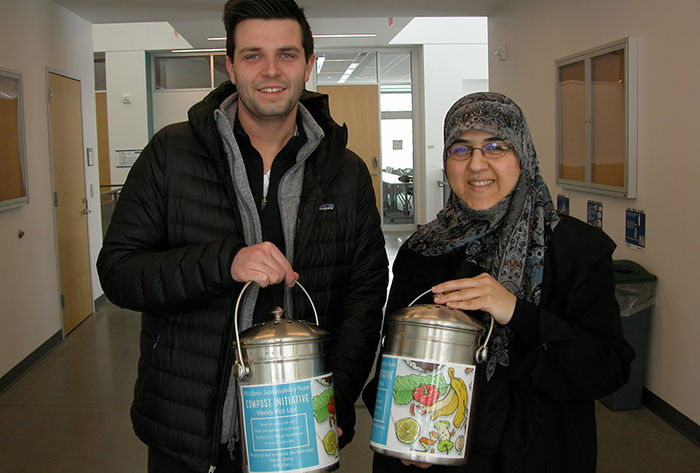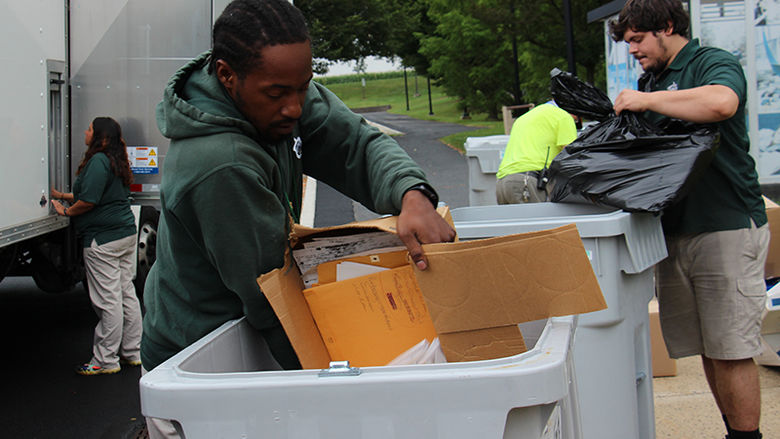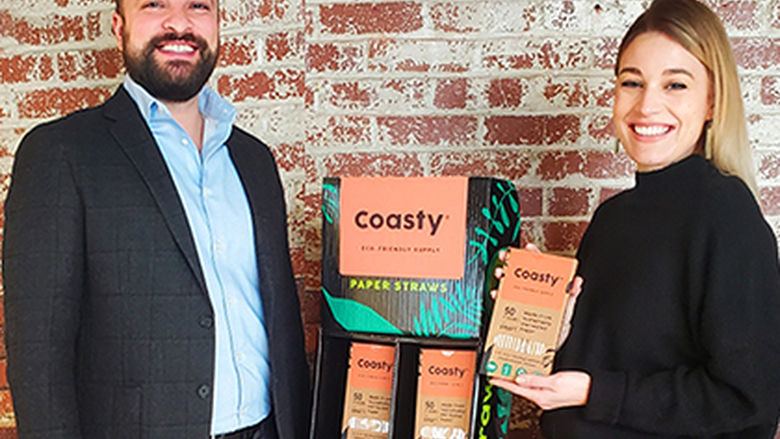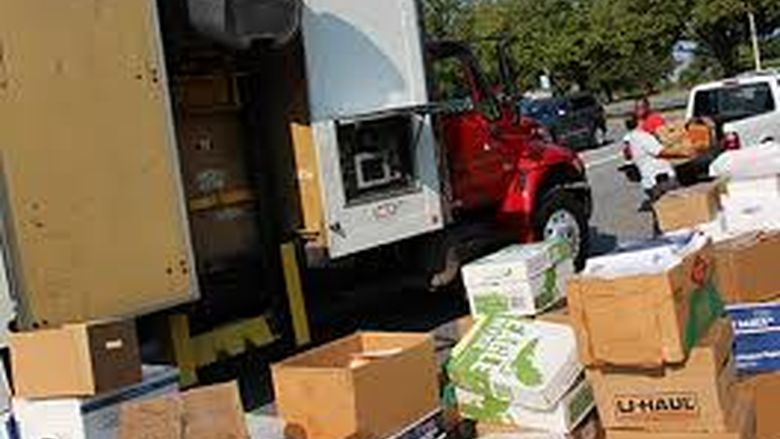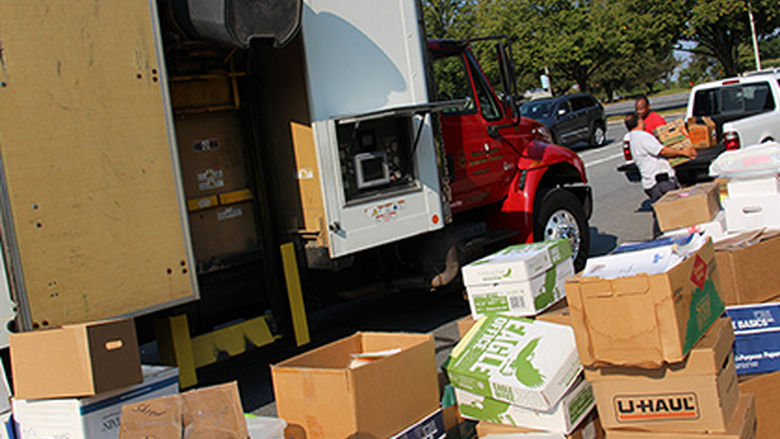
The Penn State Berks Sustainability Team continues to expand its campus composting efforts.
UNIVERSITY PARK, Pa. — While recycling has had a significant and positive effect on the environment, opportunities exist to do more. A good example is composting, which could recycle organics — food scraps, grass clippings, leaves, etc. — that make up more than half of our waste stream.
That is why, according to Associate Professor of Science Education Mahsa Kazempour, the Penn State Berks Sustainability Team continues to expand its campus composting efforts, part of the college’s overall execution of Penn State University’s Strategic Plan for Sustainability enacted in 2013.
Kazempour, who directs the team and advises the Students for Sustainability Club, said that following early discussions about composting, the team agreed to start with something on a smaller scale and decided on two initiatives, hoping they could grow into larger-scale composting in the near future.
First, the students club was able to find funding to pay for several one-gallon collection containers and on-ground composting units to process food scraps and waste (no dairy, meat or oils) from faculty, staff and interested students.
The food compost route, according to Kazempour, includes eight collecting stations — two for the Franco Building and in the Thun Library, and one in the Luerssen Building, Gaige Technology and Business Innovation Building, and the Janssen Office Building/Janssen Conference Center, and the Center for Agriculture and a Sustainable Environment where the on-ground compost bins are also located.
The second initiative was to ask Food Services to compost coffee grounds from Tully’s and the Cyber Café.
While funding for the team’s projects currently comes largely from endowments, Kazempour hopes that future money can come from more stable, long-term sources. “The team and the students are making the most of what is available in terms of both funding and resources. I am especially proud of the students who have taken on the challenge of fully running the compost route this year,” she added.
Kazempour, who teaches the college’s BI SC 003 Environmental Science course and supports her students’ involvement in many local community projects, and leads the Sustainability Team, finds that people are taking notice of the Penn State Berks efforts.
“It is critical for us to address all areas of sustainability. We have to focus on initiatives such as composting and change our actions on a personal and collective level … do anything we can to educate and empower each other. We can start small if we have to and move toward our goal one step at a time.”
While 72 percent of Americans do not compost their food waste, according to a 2014 survey by the National Waste and Recycling Association, 67 percent of these non-composters would be willing to if it were more convenient to do so in their community.
For Kazempour, seeing student involvement grow at Penn State Berks is quite rewarding. “We need to spread the word and increase engagement in such activities and efforts.”
Team member Dakota Schoppe, a senior finance major from Royersford, Pennsylvania, created a video that explains composting objectives.
For more information on the Penn State Berks sustainability and composting, visit https://sites.psu.edu/sustainabilitypsuberks/ or contact Kazempour at muk30@psu.edu.
